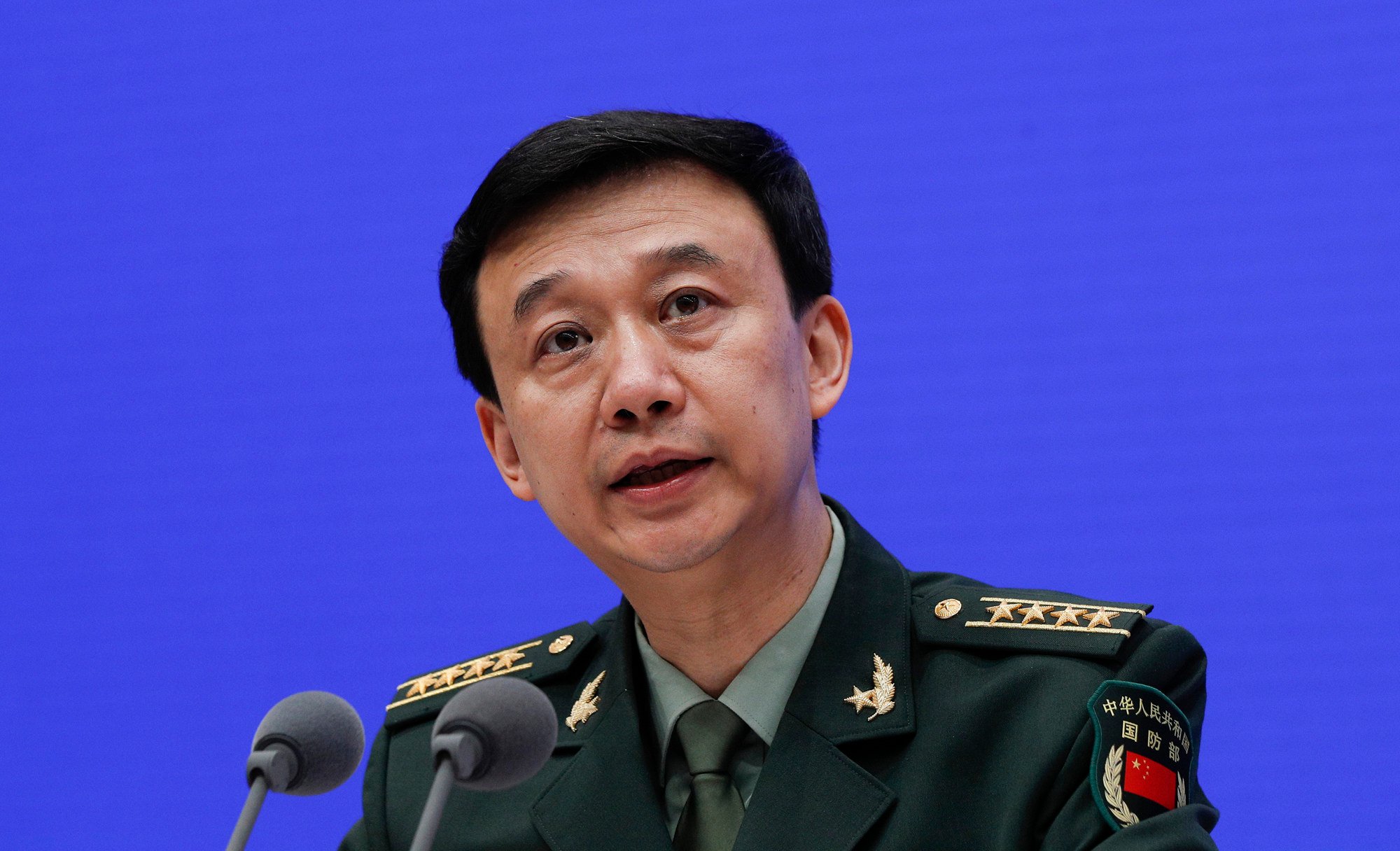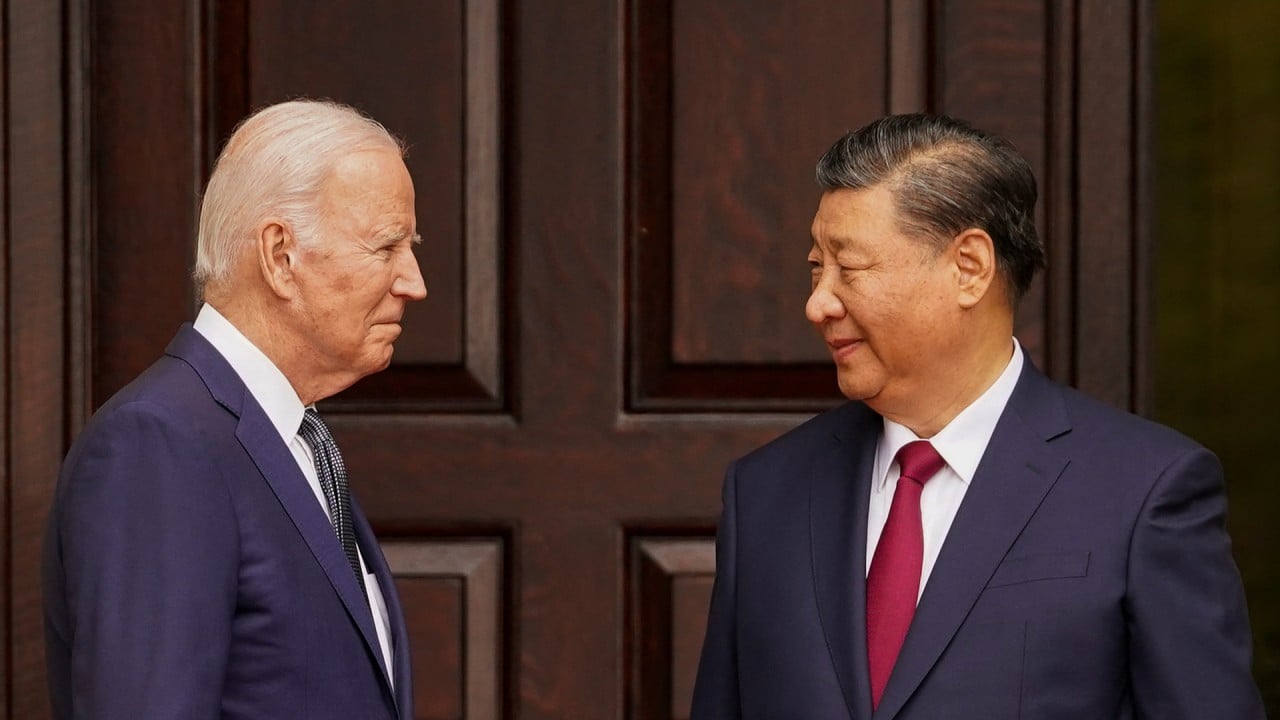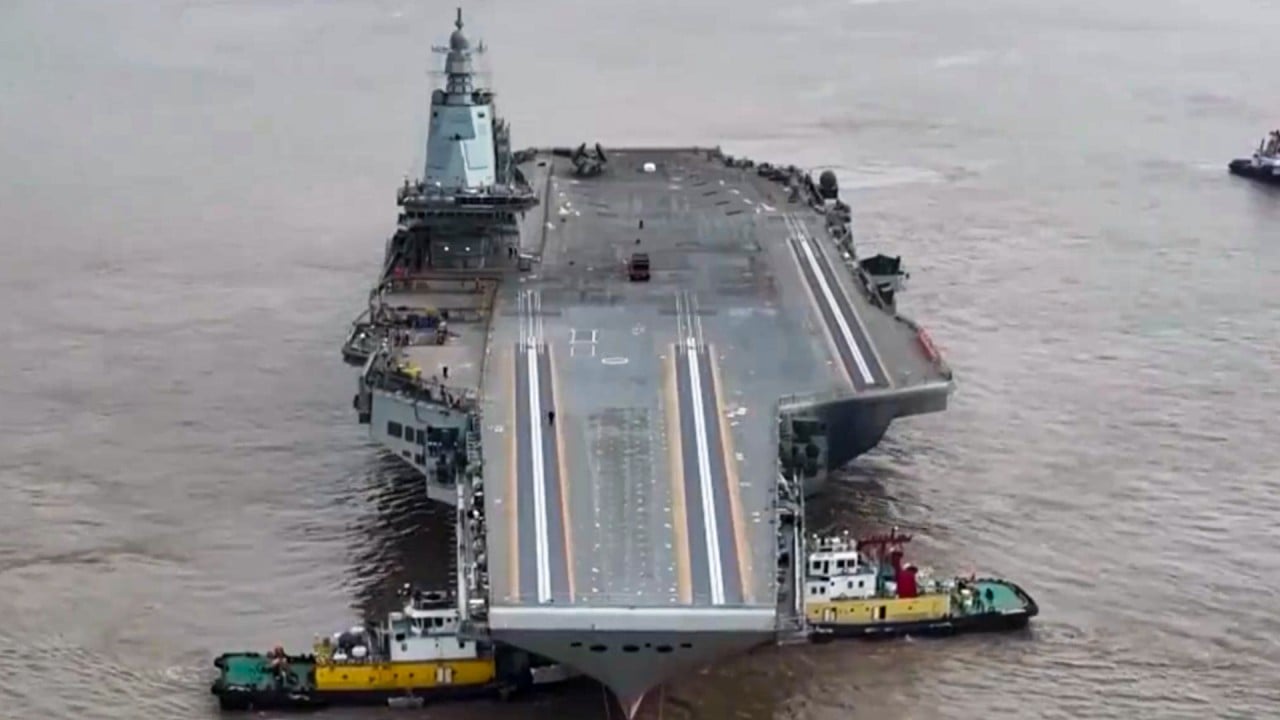
China-US relations: navy dialogue depends on status of American delegation, military analysts say
- The Western Pacific Naval Symposium will be held in Qingdao in April, the first time China has hosted for a decade
- ‘If they do not send officials of the corresponding level, it will show that they are not sincere,’ says former PLA instructor of US side
The United States could push bilateral military dialogues to a new level by sending a highly ranked delegation to a Chinese naval symposium, according to military analysts.
While most countries, including the US, do not recognise the self-governed island as independent, Washington is opposed to any attempt to take Taiwan by force and is committed to arming it.
The US might send a “relatively high, but not top-level” delegation to the Qingdao symposium, according to Zhou Bo, a retired PLA senior colonel and a senior fellow at the Centre for International Security and Strategy at Tsinghua University.
“We should note that the military-to-military relations between China and the United States have just been restored and are still in the process of recovery,” Zhou said, suggesting the US might send officials ranked “below the secretary of the navy” to attend.
“While we welcome distinguished guests from all over the world to join the navy’s anniversary celebration, there are also important topics to discuss and agree upon. In 2014’s symposium, one of the most important results was the agreement on the Code for Unplanned Encounters at Sea.
“Given the current situation of US naval activities in the west Pacific region, both China and the US need to have a senior team from the navy to have meaningful discussions.”
Song Zhongping, a military commentator and former PLA instructor, concurred.
“China welcomes the resumption of military exchanges at all levels with the US, and hopes that the US will think the same,” Song said.
“But it is entirely up to the US to decide what kind of dialogue mechanism and what level they want to engage as they are the one who keep saying that they hope to resume high-level military exchanges. If they do not send officials of the corresponding level, it will show that they are not sincere.”
China and US ‘step in the right direction’ with top-level talks in Thailand
But Hong Kong-based military strategic researcher Liang Guoliang said he expected the US would resume the tradition of sending its chief of naval operations and commander of the Pacific Fleet to attend the naval gathering in April.
“Both the Chinese and US have capable navy fleets deployed in the western Pacific. They need to have contact and exchanges at the highest level of the two navies to discuss some code of conduct to prevent conflicts. There were some understandings in the past, but it cannot address the frequent encounters,” Liang said.
“With the heightened tension in the west Pacific, such decisions and understanding can only be achieved by [meetings of senior navy chiefs], as mid-ranking officials do not have the authority to do so.”
China, as host of the symposium, invited all 23 members and seven observer states to the meeting in Shandong province in eastern China, defence ministry spokesman Senior Colonel Wu Qian said on Thursday, raising hopes of a new round of higher-level military dialogues between the two competing world powers.
Wu’s comment came a week after the People’s Liberation Army’s Navy hosted a working group meeting for the 19th Western Pacific Naval Symposium 2024 in China’s eastern city of Nanjing from January 16 to 18.

It took place amid heightened tension across the Taiwan Strait and in the South China Sea, after William Lai Ching-te, the candidate of the independence-leaning Democratic Progressive Party won the Taiwan election, and following sea encounters between China and the Philippines.
The three-day talks involving 70 naval officials from the member and observer states bordering the Pacific, including Japan, Russia and the US, discussed updating rules on unexpected encounters among other issues to prepare for the coming symposium, Chinese state media said.
After Chinese President Xi Jinping and his US counterpart Joe Biden agreed to resume bilateral military talks shortly after the Xiangshan Forum, the world’s top two military forces started to engage with each other.
And this month, they resumed an annual military meeting that has not been held since 2021.
The two parties last met in 2021 via a virtual conference because of the Covid-19 pandemic.
Collin Koh, a senior fellow at the S. Rajaratnam School of International Studies in Singapore, said “recent developments bode well”, albeit still with much uncertainty.
“So at least for the US side, it’ll seek to build on the current momentum – which can also explain why it’s likely to join [the Western Pacific Naval Symposium],” he said.
“For the Chinese side, at least it shows its willingness to re-engage, even if somewhat grudgingly … since fundamental factors behind the tensions aren’t addressed in Beijing’s eyes, such as the question of Taiwan.”
Koh said that subsequently, the ball was in China’s court.
China names Dong Jun as new defence minister to replace ousted Li Shangfu
Drew Thompson, a visiting senior research fellow at the National University of Singapore’s Lee Kuan Yew School of Public Policy, said the most important military-to-military channel that must be restarted was the Military Maritime Consultative Agreement in which the US and Chinese militaries discuss operational safety and implement the 2014-15 agreement to build confidence and establish so-called rules of the road.
However, he questioned the value of the Xiangshan Forum in military-to-military engagement.
“The objective is not ‘contact’ of any sort, but contact and channels that contribute to stability, rather than propaganda-heavy forums.”



